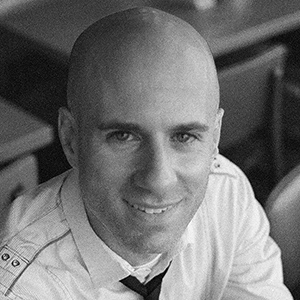 Today’s guest is Ben Seigel. Counting on fifteen years professional web experience, Ben handles project management, web design and development. He specializes in Craft and ExpressionEngine CMS.
Today’s guest is Ben Seigel. Counting on fifteen years professional web experience, Ben handles project management, web design and development. He specializes in Craft and ExpressionEngine CMS.
Ben runs the Madison Web Design & Development Meetup and volunteers each year with Junior Achievement. In his spare time, he enjoys bicycling, music, travel, spirited conversation and pretending to do Parkour.
We discuss how Ben got into the web design business, his processes, getting the best results for a project and your client, design simplicity, and three quick tests you can try on your website to see if it meets industry standards for 2017.
In this week’s show:
- Building awareness of a growing medium
- Systematization
- The intake process is all about the business owner
- Planning isn’t sexy
- Interrogating a problem
- Keeping it simple
- Ben’s top 3 quick tests for your website
Links:
Today’s wine:
- Bartenura Moscato from Italy, 2016. Winemaker’s Notes: Crisp and refreshing, semi sweet, with lingering pear, tangerine, nectar and melon flavors on the finish. Perfect with dessert or fresh fruit, or sipping poolside.
Get alerted when there are new episodes (2x/month, 1x/month in the summer):
Ben is a self taught web designer and developer. In the late ‘90s, Ben was running a lawn service and got his first computer to do his books and get online. After learning to code and design in his spare time, he got a job making websites for law firms and, after a couple of years of experience, broke out on his own.
In the early days of his agency, sales and marketing largely depended on running print ads, having conversations with business owners, and referrals to get his business up and running.
Building awareness of a growing medium
At the time, the idea that every business should have a website was relatively new. So it was important for Ben to identify the right businesses to target for his service and draw their attention to this growing online medium.
By pointing to competitors or to other local businesses, people began to get on the ‘idea train’ and understand the value of having a website. As the concept spread, it made the sales process easier.
And by being the person to educate these businesses early, Ben was able to establish himself as an expert and grow a sizeable client base at a time when the industry was growing.
Systematization
As the agency has grown, Ben has systematized processes in the business. One of these is contracting – to make contract and proposal writing easier.
He has created a standard set of feature descriptions and language for the parts of a website. From what clients get for initial mockups and designs to what they’re going to get for a branding design.
For the terms of the contracts, Ben adds a new line or paragraph to his terms and conditions every time he has a bad experience with a client – whether fault lies with the client or the agency – to avoid making the same mistake twice.
Ben’s time is roughly split: 40% on sales, 40% on client work, 20% managing other people.
The intake process is all about the business owner
Being able to translate your expertise into layman’s terms is crucial in the process of selling. It’s not your chance to talk about how smart you are and how much you know about technology, it’s your chance to figure out the client’s needs and what those needs mean to the project.
Don’t feel the need to describe your solution right away; let the client describe their problems so that you can develop the appropriate solution.
Within every organization there is a lot of institutional knowledge that can be hidden. Often people don’t know what they know because they have been working in their industry for so long.
As a result, sometimes what comes out of doing this kind of planning can be not what you expect.
It can even mean you discover that the project they have in mind is not going to give them the required return on their investment, and so you advise them against hiring you for it. This kind of honesty can develop trust; in many respects we are all sceptical around a salesperson’s claim that they are there to help you. Because we’re thinking that they’re just there to make money.
But by showing the value of uncovering this information through the intake process, and having it lead wherever it leads, you’re showing that you really are there to help.
Planning isn’t sexy
We don’t get excited for planning meetings, for digging through company strategy and bringing in employees from across the business to get their input. Site designs, logos, and new technologies are much more exciting.
Planning is hard work. But when you do it thoroughly, you have a defined and structured set of requirements that are based on the needs you have identified.
Without spending the proper time on planning, you end up with cookie-cutter sites with generic designs and copy that don’t deliver the results you need for your business.
Interrogating a problem
Continuing to dig and asking probing questions throughout the process is not only great for building relationships, it uncovers all kinds of unexpected requirements and ideas.
By continually asking ‘what am I not asking you?’ and by speaking to new people within an organization, you can uncover valuable information that can shape a project.
Keeping it simple
Ben likes to keep things as simple as possible when building clients’ websites.
Everyone wants to keep things simple in theory, but in practice, projects can often unwittingly become overly complicated.
Ben gives the example of a restaurant. There are three key things that people want to find out when they are looking for a place to eat:
- The hours
- The menu
- The location
There may be other things that people want to find out, but in its most basic form, a restaurant website should contain those key pieces of information, on a page that loads quickly and responsively on all devices.
Cluttering a page with social sharing features is not a top priority and can complicate the user experience.
Likewise, keeping content within a page strictly relevant its subject is important to the user experience and engagement as a result of that.
Daring Fireball is an excellent example we give of simplicity in design and user experience. In both design and content, this site keeps things minimal, displaying only the content that matters with no extraneous features.
Ben’s top 3 quick tests for your website
Ben advises three things that everyone should look out for on their website in 2017.
- Responsiveness — all websites should now work across all devices (mobile, tablet, desktop).
- Load time — if users have to wait too long for your site to load, they will leave.
- 3rd party tests & feedback — have somebody who is not emotionally invested in the site have a look around your site, ask them to perform some basic use cases and observe any friction or faults that they encounter along the way. This will give you some things to fix to improve your user experience.
You can test your website’s load time here: GTmetrix

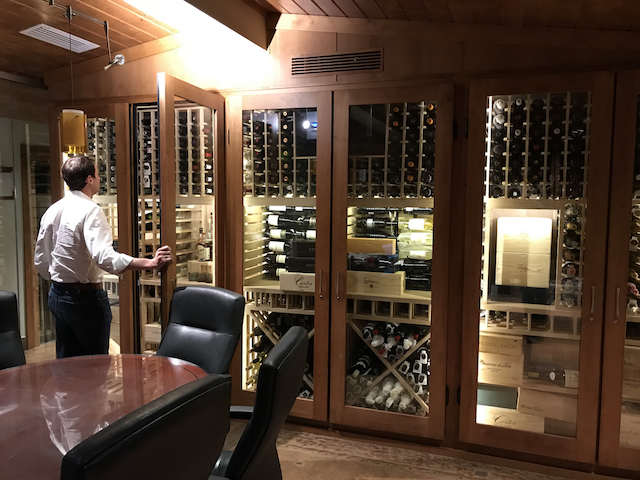
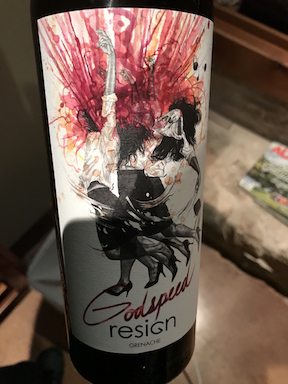 2015 Godspeed Granache from Resign Wine. Yummy blend of 80% Grenache, 20% Mourvèdre– the grapes are California, but the company is actually based here in Texas.
2015 Godspeed Granache from Resign Wine. Yummy blend of 80% Grenache, 20% Mourvèdre– the grapes are California, but the company is actually based here in Texas.


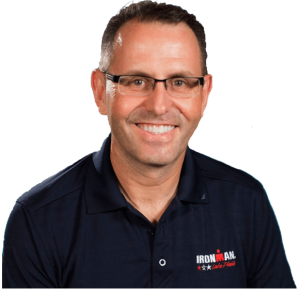 Bryan Payne is a serial entrepreneur, salesmen, Iron Man (12 times over), and general man of adventure and humor.
Bryan Payne is a serial entrepreneur, salesmen, Iron Man (12 times over), and general man of adventure and humor. Another yummy, fruity Sonoma Pinot Noir. What can I say? I like them.
Another yummy, fruity Sonoma Pinot Noir. What can I say? I like them. Rohan Kale is an international man of mystery. Ok, not so much mystery, but certainly adventure. He was on the typical track of a talented engineering student in India, grinding out 100 hour weeks for a big software company.
Rohan Kale is an international man of mystery. Ok, not so much mystery, but certainly adventure. He was on the typical track of a talented engineering student in India, grinding out 100 hour weeks for a big software company. Mönchhof Riesling, 2008. As I mentioned, if I think of it as “wine”, I find it way too sweet. But if I think of it as “dessert in a glass”, it’s pretty good.
Mönchhof Riesling, 2008. As I mentioned, if I think of it as “wine”, I find it way too sweet. But if I think of it as “dessert in a glass”, it’s pretty good. Laura Roeder makes business look easy. Her latest venture, MeetEdgar.com, made it to a million in revenue in the first year. She had her own SXSW panel at 29.
Laura Roeder makes business look easy. Her latest venture, MeetEdgar.com, made it to a million in revenue in the first year. She had her own SXSW panel at 29. Kim Crawford Sauvignon Blanc from New Zealand, 2016 (not 2006 as I accidentally stated).
Kim Crawford Sauvignon Blanc from New Zealand, 2016 (not 2006 as I accidentally stated). How do you differentiate yourself when your competitors are also experts?
How do you differentiate yourself when your competitors are also experts?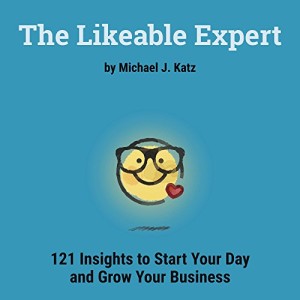
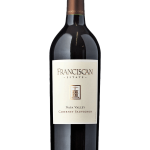 I enjoyed a(nother) glass of 2013 Franciscan Cabernet Sauvignon from Napa Valley. A nice, up the middle of the road cab. (It’s pretty expensive on the Franciscan.com site, but you can get it for $15-18.)
I enjoyed a(nother) glass of 2013 Franciscan Cabernet Sauvignon from Napa Valley. A nice, up the middle of the road cab. (It’s pretty expensive on the Franciscan.com site, but you can get it for $15-18.) .. and the beer…
.. and the beer…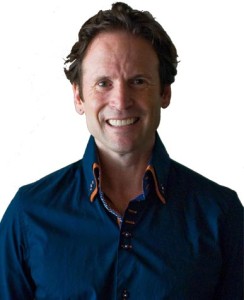 Few authors have had the impact on sales that Aaron Ross has had over the past few years. His first book, Predictable Revenue, called “the sales bible of silicon valley”, he co-authored along with Marylou Tyler, who was on
Few authors have had the impact on sales that Aaron Ross has had over the past few years. His first book, Predictable Revenue, called “the sales bible of silicon valley”, he co-authored along with Marylou Tyler, who was on 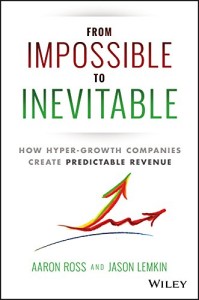
 Brennan Dunn, who you may know from
Brennan Dunn, who you may know from  Today’s guest is Ben Seigel. Counting on fifteen years professional web experience, Ben handles project management, web design and development. He specializes in Craft and ExpressionEngine CMS.
Today’s guest is Ben Seigel. Counting on fifteen years professional web experience, Ben handles project management, web design and development. He specializes in Craft and ExpressionEngine CMS.